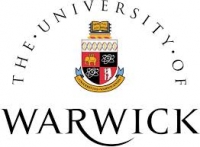






The core Chemistry modules in years 1 and 2 allow you to build a sound physical sciences foundation alongside an enhanced appreciation of the role that bio-molecules play in the cell from both a Chemistry and Life Sciences perspective in these multidisciplinary degrees. Foundation modules such as Proteins, Genes and Genetics enable you to select more advanced topics including immunology, infection and neurobiology in years 2 to 4, at the same time as continuing to develop your knowledge of synthesis and analytical methods. You can choose a research project from Chemistry, Life Sciences, or both as part of the MChem Chemical Biology degree. The content of each of these degrees is suitable for application to graduate entry medicine, for example the four-year MBChB degree at Warwick Medical School. A detailed knowledge of the chemistry – life sciences interface is invaluable in many other areas, including research. The knowledge and skills gained in experimental chemistry and basic molecular biology equip students for a range of careers across the chemical, pharmaceutical and bio/med industry. For module information please visit the Biomedical Chemistry module website. How will I be taught? You will receive weekly tutorials and spend one or two days a week undertaking laboratory work. This is more project-oriented in your second year, culminating in a substantial individual research project in your final year. This may be wholly laboratory-based, or involve data collection or fieldwork. Purpose-built teaching facilities are fully integrated with research laboratories, facilitating opportunities for informal contact with teaching and research staff. How will I be assessed? You will be assessed using a variety of methods including tutorial, laboratory practical, oral presentation and other written assignment tests as well as exam based questions. What opportunities are there for work placements? All of our degrees can be taken with an intercalated year of salaried employment with industry or a research establishment, between second year and third year modules. Recent placements include the Assisted Reproduction Unit Walsgrave Hospital, AstraZeneca, GSK, Novartis and DEFRA. Application for placements is made at the beginning of year two. A high proportion of applicants are successful and approximately 20–30 students each year benefit from the scheme. Students join carefully monitored research projects, covering a wide range of scientific areas. They gain valuable experience in scientific writing and information technology and, in some placements, insights into legal and regulatory aspects of science, e.g. patenting, quality assurance, environmental control. Participants in the scheme remain registered students during placement and are awarded a degree ’with Intercalated Year’. What opportunities are there to study abroad? All students have the option of spending a year at a University in continental Europe under the Erasmus scheme, between your second and third year. This will add a year to your overall period of study and you will thus complete your degree in four years. Students will typically be expected to have completed at least Level 3 (or equivalent) in the target language prior to studying abroad; you can take language modules in years one and two to reach this level, which can count towards your degree if you choose.
| Number | Duration |
|---|---|
| 3 | year |
Employers prize our graduates for their knowledge and transferable skills. Your degree provides a firm basis for Professional Development in Industry or Academia and could lead to RSC Chartered Chemist (CChem) status. Many graduates undertake higher degrees in chemistry or go directly into careers in the chemical and pharmaceutical industry, the NHS or Finance; others undertake further training to become teachers or enter the medical profession.